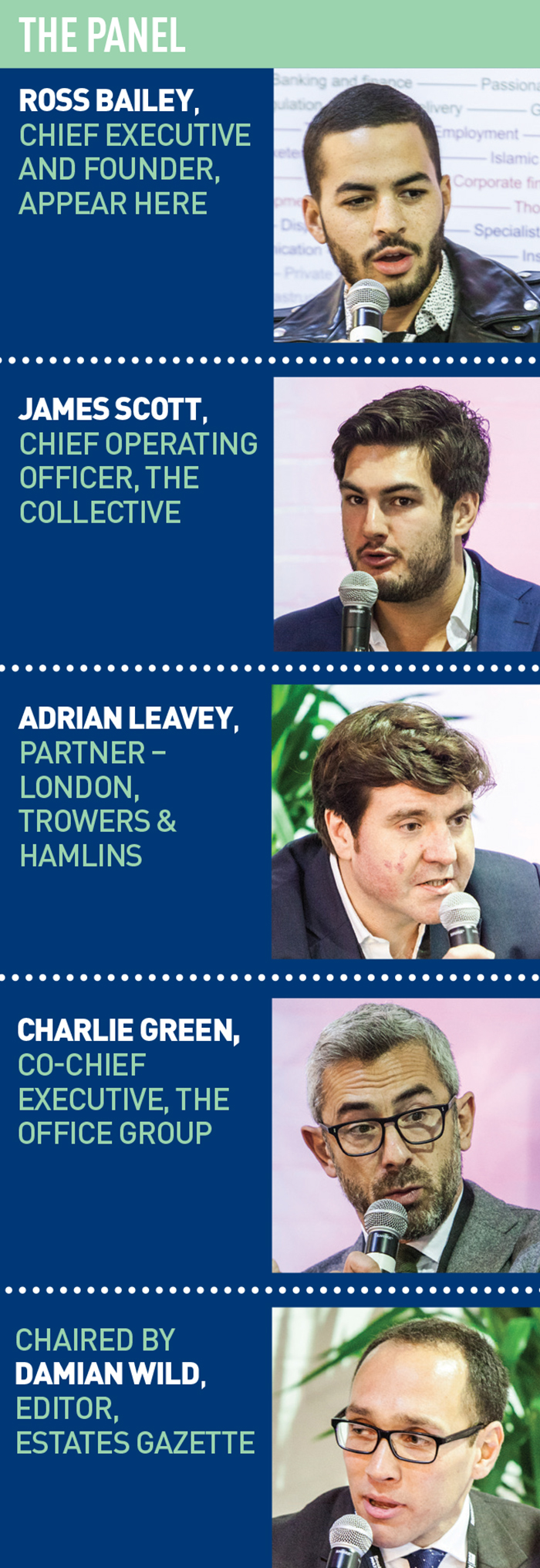 Pop-up spaces, although temporary in nature, are set to permanently influence the future of real estate – or at least that is what 43% of respondents to Estates Gazette’s and Trowers and Hamlins’ REview believe.
Pop-up spaces, although temporary in nature, are set to permanently influence the future of real estate – or at least that is what 43% of respondents to Estates Gazette’s and Trowers and Hamlins’ REview believe.
Changes in both consumer and landlord behaviour, along with increased demand for shorter leases in retail, office and residential space, are driving a pop-up revolution.
At a breakfast panel debate at this year’s MIPIM UK, The pop-up revolution, hosted by Estates Gazette and in association with Trowers & Hamlins, delegates heard from a panel of pop-up experts.
Ross Bailey, chief executive and founder of Appear Here, was the first to set the tone for the discussion – that pop-ups are here to stay. “It is more of an evolution than a revolution,” he said. “Leases are getting shorter, which is natural in retail, but I think the concept of temporary leases is something we are seeing across the board.”
The pop-up surge has been particularly evident in the retail and leisure market, driven by an increased consumer need for exclusivity.
“People are moving away from big supermarkets and big chains, now they want smaller exclusive stores where they can get something that you can’t get anywhere else,” said Jessica Tucker, founder of Urban Food Fest.
There are also positives for landlords willing to let space temporarily.
“As a landlord it is a very good way to create value where there wasn’t any value before,” said James Scott, chief operating officer at The Collective. “While you are waiting for a site to be developed, you can monetise it with a pop-up. It is a win-win for creating value.”
Pop-up companies do not strictly consider themselves property companies, but more of a combination of property and tech. According to Scott, to be successful in both the pop-up and property sectors you need to be using technology to be at the top of your game.
“This does not mean you are a tech company, but it should be important to you if you are a property business,” he said.
But what does the traditional property industry make of all of this, and will pop-ups stand the test of time?
“From a legal perspective, it’s all rather frightening,” said Adrian Leavey, partner at Trowers & Hamlins. “We need to produce more flexible structures if we can, because all things change and we have to have an understanding of this.”
Given that the rise of pop-ups has been largely driven by consumer demand, there is no reason that it should be London-centric or retail focused. “We are now seeing an extra layer and the chance to be part of something bigger,” said Charlie Green, co-chief executive of The Office Group.
“We are in our workplace longer and we want there to be a social aspect to that too, which means that quality of life and a community element is very important to this business. Traditional landlords will have to be more creative, and I think there needs to be a mindshift for both landlords and occupiers.”











